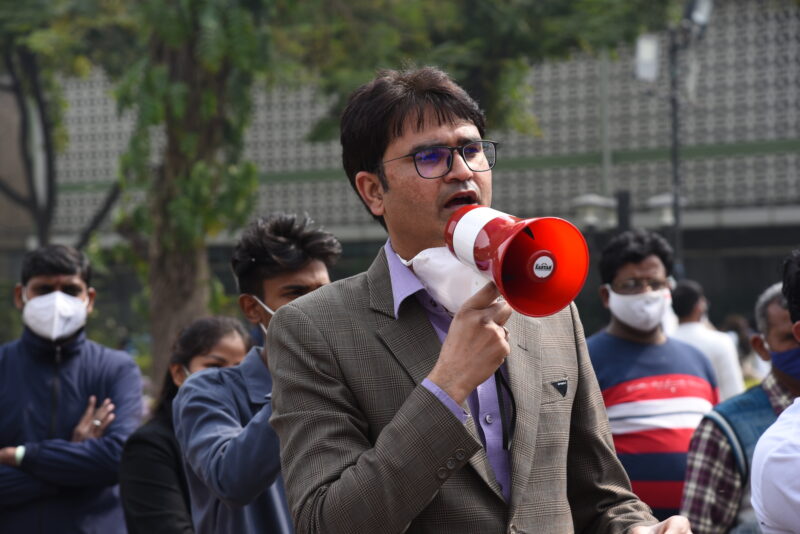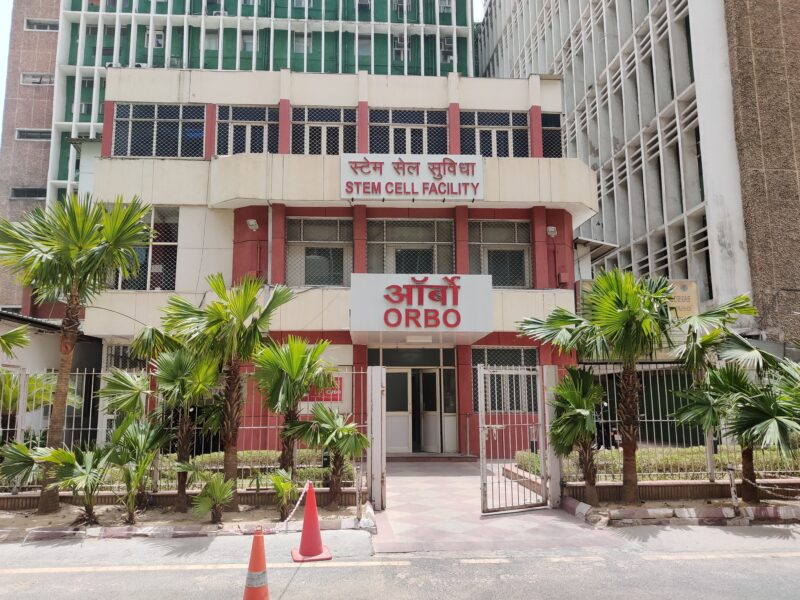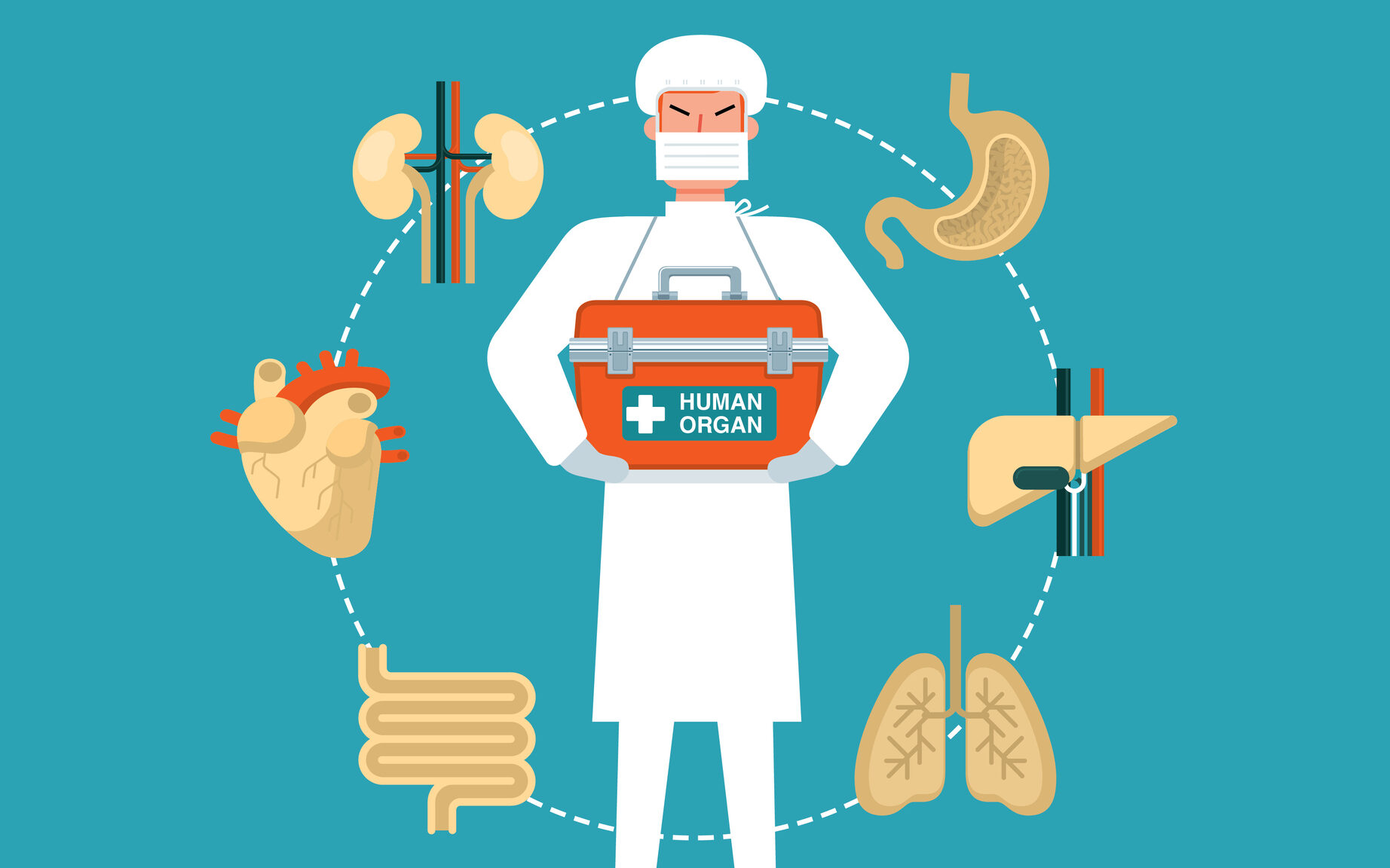Although 16-year-old Neelima could not officiate her pledge for organ donation before she passed away last week, she used to have discussions with her family for the pledge. Akhilesh Tiwari, Neelima’s grandfather with whom she used to live, tells, “After she was declared dead, doctors said that her whole body had been damaged but the eyes were intact. We remembered that she was always enthusiastic about organ donation, and so we went ahead with her will.”
All members of Neelima’s family have now decided to go for organ donation. When asked what inhibits people from making this choice, Tiwari says, “Some are worried that their body will be distorted. others think that they will be born blind in their next life.”
Kanishk Yadav, a nursing officer at AIIMS, New Delhi, who also runs Rajasthani Mitr Mandal, an NGO which spreads awareness on blood and organ donation, says, “It all started 4-5 years ago with a blood donation drive. With almost 25,000 employees in AIIMS, we started out by first motivating our family (AIIMS).”

Yadav is involved with several outreach programmes that vary based on the requirements of the healthcare sector. He has also worked in vaccination camps during Covid and has voluntarily worked for almost 70-80 various other camps.
In camps, which were focused solely on blood donation, outreach programmes for organ and eye donation started almost a year ago. He mentions that sometimes, families of the patients get motivated when they see him serving the patient to the best of his capacity. Only then does he suggests that people should go for organ donation.
Nowadays, the term ‘eye donation’ is switched with ‘cornea donation’, as the former implies retrieval of whole eyes, the idea of which seems disturbing to many. It is the cornea, the transparent part of the eye, that is extracted to treat corneal blindness, Yadav clarifies.
Helping hand, and a little more
“Not everyone can donate due to a strict criteria. However, everyone can at least pledge for organ donation as nobody knows what will happen tomorrow”, says Yadav. He continues, “Just as a person gets life insurance so that his family can live peacefully after he is gone, he should think about humanity too. Times are changing, and people have started to think practically.”
Not only is taking a pledge important, but one should also educate their family since the decision to permit organ donation resides with them after a person dies.
When asked about the frequency of organ donations, he answers saying it is variable. During the pandemic, as per the govt guidelines, organ donation was not permitted at all.
“Voluntary donation is less as there is a window for people in the form of illegal trafficking of organs because people are not aware”, Yadav adds.
Real heroes
Yadav states that people who pledge to donate should be hailed as heroes in the society so that more people are encouraged. A lot of this role is of the media and government bodies. He further suggests that a chapter on organ donation should be introduced in the school syllabus.
“A multi-centric approach is needed to curtail this issue. A lot of people find inspiration from people that they read about during their early phase when they are at school. At present, it’s the medical professionals involved in outreach programmes educating people. When a teacher starts discussing this issue in classes, and children come home and discuss with their families, that’s when change can be seen”, he says.
Research and transplantation go hand-in-hand. “Today, we have to conduct drives to counsel people and motivate them, but once it’s a part of the syllabus, people will themselves go ahead and take the pledge”, Yadav continues.
He also says that it’s easier to persuade a person to pledge for organ donation if he is already into donating blood. “First donating blood, then cornea and then whole body — this is the hierarchy”, he explains.
When asked if people are impeded to pledge due to their religion, he says, “Yes, a lot. Therefore, a coordinator of the same religion steps in to guide people facing a conflict in making the decision due to religious beliefs.”
Yadav adds, “If people say that they are a nationalist, they should come forward to help fellow citizens in their capacity. Being a nationalist, we should be concerned with the issues of the country.”
Similar views were held by a transplant coordinator, who wishes to remain unnamed, at Organ Retrieval Banking Organisation (ORBO), AIIMS, New Delhi. ORBO is a nodal organisation that is at the forefront for cadaver organ and tissue donation related activities. The coordinator who is proud to have pledged his organs for donation says that most of the occurrences of brain death are related to medico-legal cases (MLC); therefore, an NOC from the police is also needed. His job lies at the centre of dealing with police, family and doctors.

A brain-dead adult undergoes various tests at two intervals, once at the time brain death is declared and then 6 hours later for adults. This window for children, however, is 12 hours.
When asked what people can pledge for, the coordinator says, “People can pledge for donation of vital organs like the heart, liver, kidney, lungs and pancreas and tissues including cornea, heart valves, bones and skin.”
Organs or cadavers that are received at ORBO are used for transplantation and training and research purposes. An apnoea test is the most helpful indicator of brain death. A positive apnoea test confirms zero respiratory activity. Along with this test, brain stem reflexes are also monitored. Subsequently, the patient is declared brain-dead by a team of four doctors.
He recognises that the major cause of families being reluctant to donate is fear. “People have a fear of what society will think about them”, he says.
Demand and supply
With Delhi witnessing busting of illicit organ trade earlier this month, a need to address the cause of this issue is imperative. The ever-increasing demand for transplants and shortage of potential donors is one of the underlying causes accelerating organ trafficking.
The coordinator believes that the situation could improve if more people opted for donation. “Acceptance of brain-dead as dead by the family is an issue that needs to be addressed since a brain-dead person looks alive – only that he is on life support and his brain has stopped working”, he explains.
Counseling
A large part of the job of a transplant coordinator includes counseling people. It is a challenging task to approach people that are already grieving the loss of their loved one; approaching them at such a time is a task that requires a lot of courage.
Due to a male-dominated society, many times, women find it difficult to allow for organ retrieval of the spouse as they have to make the decision considering the sensitivity of time. This sometimes results in a delay in the process.
He states that the dignity of the body is maintained, and incisions are made in a way that the body shape is not distorted. All measures are taken so that the last rites of the deceased are done as per the schedule decided by the family.
For more stories that cover the ongoings of Delhi NCR, follow us Instagram: https://www.instagram.com/thepatriot_in/
Twitter: https://twitter.com/Patriot_Delhi
Facebook: https://www.facebook.com/Thepatriotnewsindia





